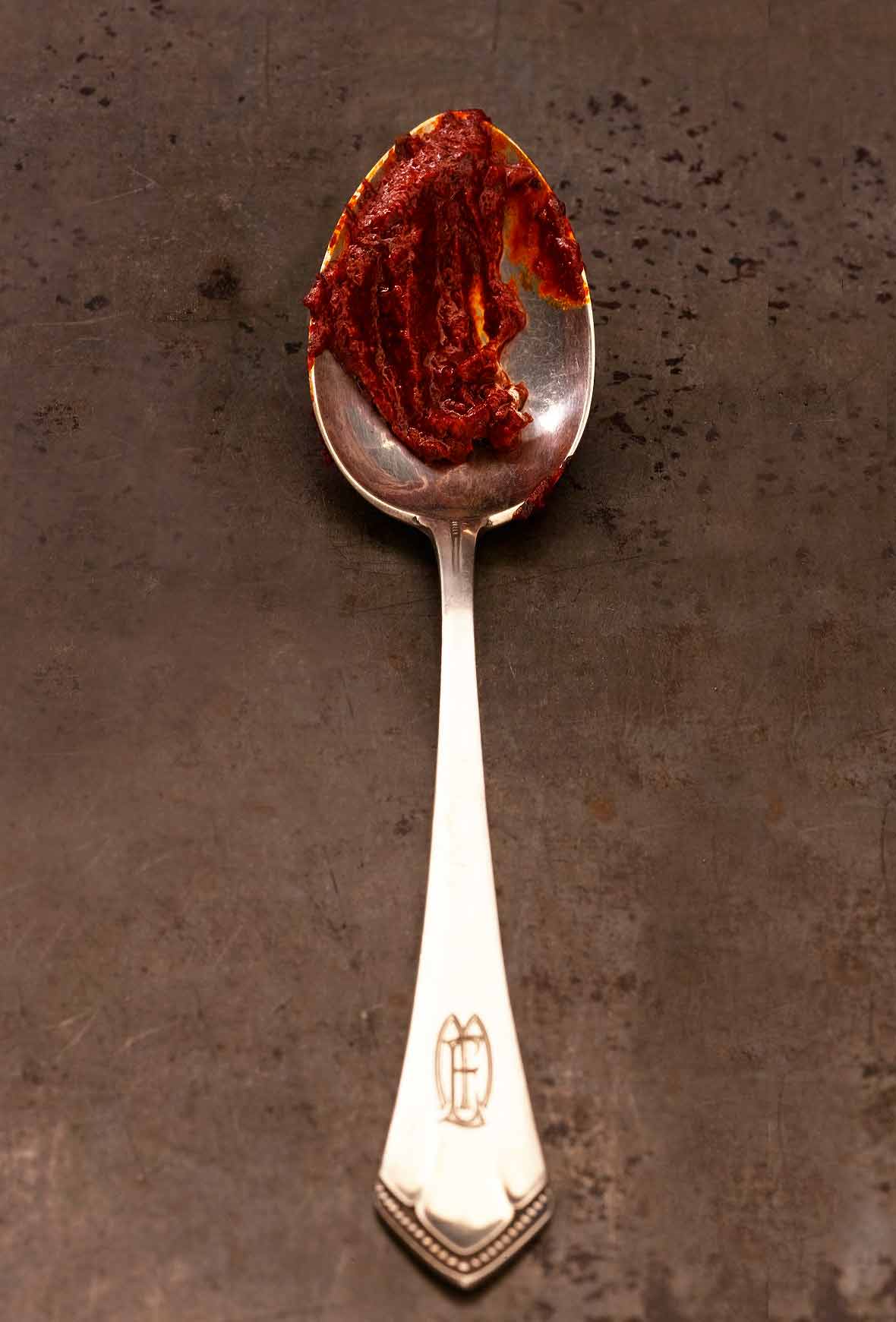
Massa de pimentão is originally from the Alentejo province. The salty red pepper paste, a pantry staple, is a Portuguese classic and constitutes the major flavor component of the region’s cooking. Each cook has his or her own version. Some are made from fresh bell peppers that have been salt-cured, others rely on roasted peppers, still, others turn to paprika. This isn’t the classic version. This is an “amped-up red pepper paste” based upon my family’s recipe. I wanted all the flavors of the Portuguese kitchen in one power punch of a paste.
It’s richly flavored–think of it as a preseasoned rub–so all you have to do to make dinner is rub a little on beef, chicken, fish, or even peeled, halved potatoes before roasting. Although I have to say that this particular paste’s most famous—and deservedly so—application (although granted, I’m a little biased) is my Grandmother Costa’s Bread Dressing.–David Leite
How To Use Portuguese Red Pepper Paste
David explains that red pepper paste is sorta like Asian fish sauce in that a little goes a loooooooong ways. As David mentions above, you can rub a little on a beef roast, chicken (both above and below the skin), fish, even peeled, halved potatoes before before roasting. Or you can stir it into stews or soups. It works wonders when stirred into mayo. And any other application you can imagine where you want or need a little bling. Then let us know how you used it in a comment below.
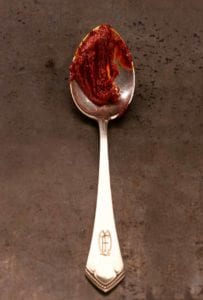
Portuguese Red Pepper Paste
Ingredients
- 2 tablespoons sweet paprika
- 2 tablespoons sweet smoked paprika
- 1/4 cup dry red wine
- 8 to 10 garlic cloves
- 2 Turkish bay leaves, crumbled
- 3 tablespoons tomato paste, or 1 tablespoon double-concentrate tomato paste
- 1 1/2 tablespoons fresh lemon juice
- 7 sprigs cilantro
- 5 sprigs flat-leaf parsley
- 1 1/2 tablespoons kosher salt (16 g)
- 1/4 teaspoon freshly ground white pepper
- Few dashes piri-piri sauce, or to taste
- 1/4 cup olive oil
Instructions
- In a food processor, combine the sweet paprika, sweet smoked paprika, wine, garlic, bay leaves, tomato paste, lemon juice, cilantro, parsley, salt, pepper, and piri-piri sauce.
- Pulse until the garlic and herbs are minced, scraping the sides of the bowl as necessary.
- With the motor still running, add the olive oil in a slow, steady stream and continue whirring until the mixture comes together in a slick, homogeneous paste, 1 to 2 minutes.
- Use the mixture immediately or spoon it into a small glass jar with a tight-fitting lid and refrigerate for up to a month.
Notes
Classic Red Bell Pepper Paste Variation
This classico approach to red bell pepper paste relies on salt-cured bell peppers for oomph. It’s a much saltier version of the paste than the recipe above, so use it with a judicious hand. Wash, stem, and seed 3 red bell peppers. Slice them into 1-inch-wide strips. Line a colander with cheesecloth and pour in about an inch of kosher salt. Press some of the strips into the salt and cover with another inch of salt. Continue layering until all the strips are covered. Top with a heavy pan. Place the colander in a large bowl and set aside at cool room temperature or 5 days. On the 6th day, fish out the bell pepper strips and brush off the salt but do not rinse. Purée in a food processor, transfer to a clean glass jar, and refrigerate until you need your next fix.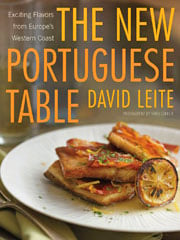
Nutrition
Nutrition information is automatically calculated, so should only be used as an approximation.
Recipe Testers’ Reviews
While the recipe title may conjure up a pile of roasted red bell peppers with charred skins, this smoky paprika paste has none of those. In a very short 15 minutes of time, you will have a lovely red paste that can enhance the taste of chicken, pork, even some chicken noodle soup.
The smoky paprika flavor dominates the flavor profile. We stirred it into some homemade chicken noodle soup and it really amped up the flavor. Searching for how else to use it, we tried on chicken and sautéed shrimp. Coating it on chicken breast in the final minutes of cooking would be a delicious addition. Other ideas would be to mix with a bit of mayonnaise for a sandwich spread or create sauce for pork tenderloin. I think you could even make a vinaigrette for a salad with the addition of a nice and mild vinegar like cider, rice, or white wine vinegar.


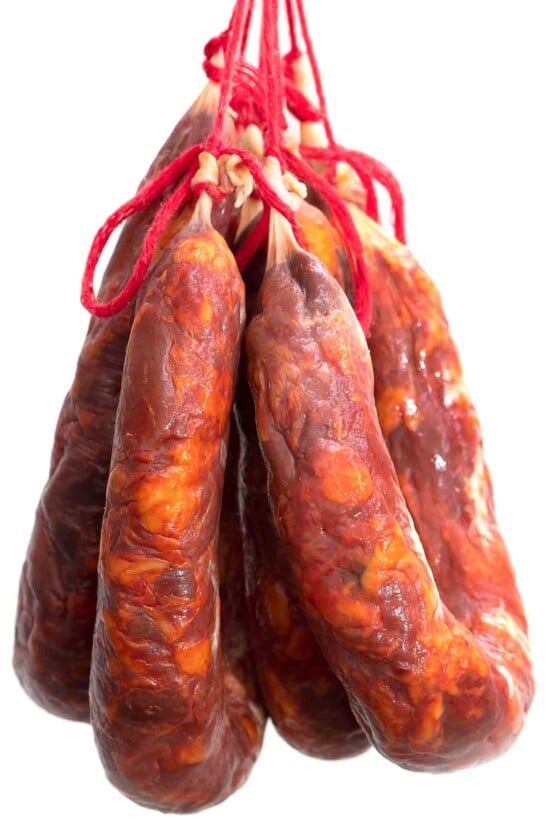
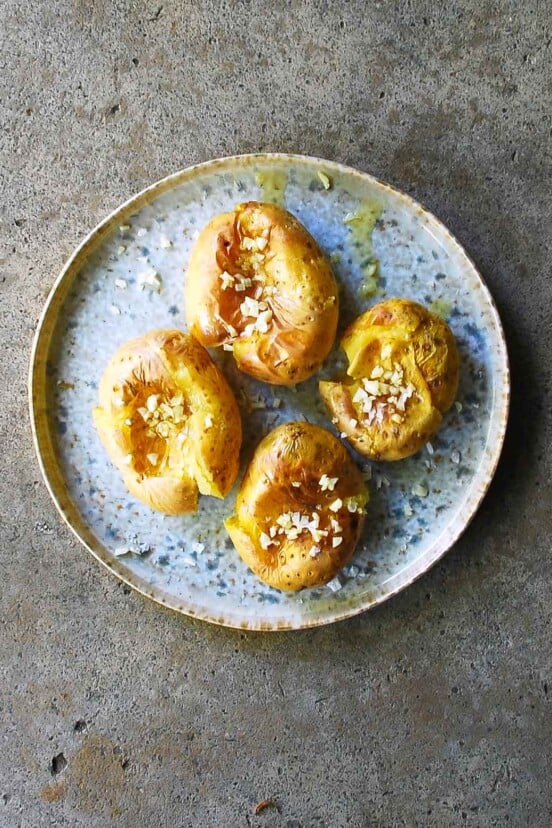









The writing is on the (plate) wall! I just can’t stop running my finger through this paste … it tastes like meatless chouriço! It exudes umami while containing every popular Portuguese flavour. The peppers, the bay leaf, the wine, the sweet, the spicy, the smoky… yum! Thank you, David! This recipe really rocks!
Gorm3sa, why thank you!! To me, it’s the taste of Portugal!